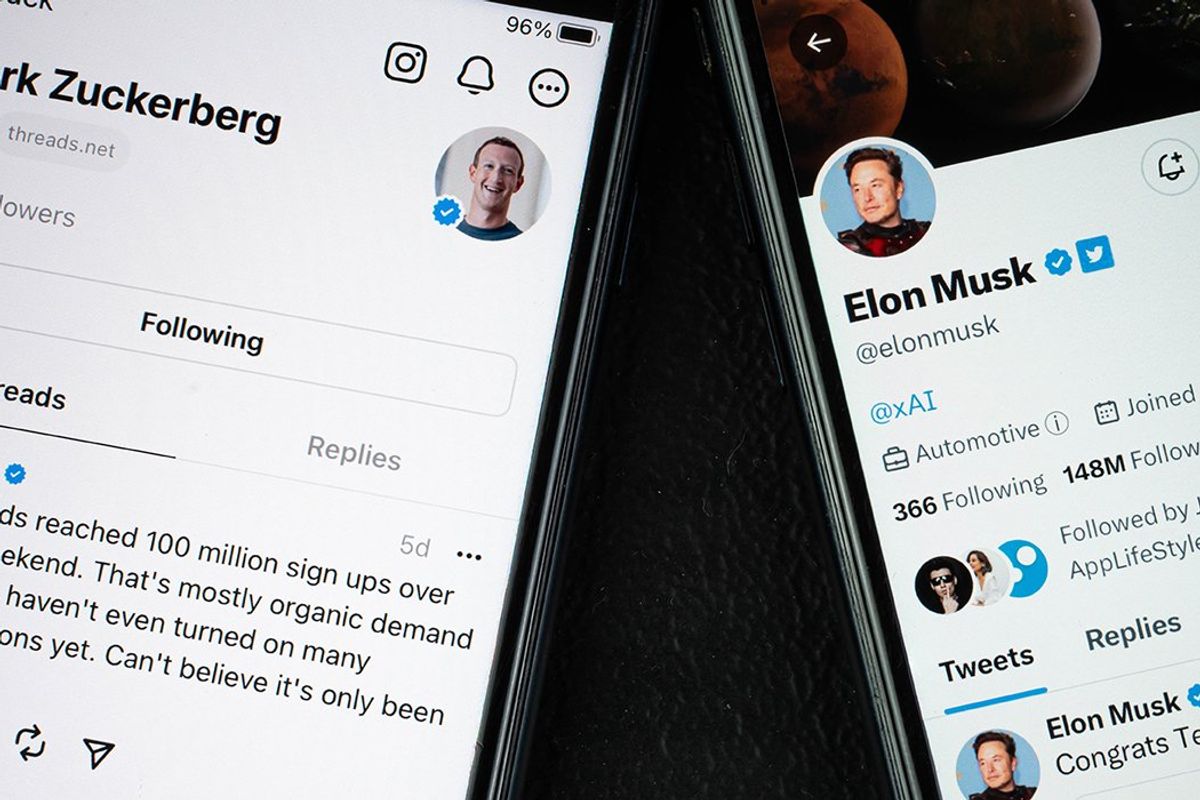
It may finally be time to nuke all your Meta accounts and join Bluesky.
Meta CEO Mark Zuckerberg has announced sweeping changes to content moderation across the company's platforms—Facebook, Instagram, and Threads—that critics say could create a haven for hate speech and misinformation. The changes include removing fact-checkers, reinstating the promotion of political content, loosening restrictions on topics like gender and immigration, and relocating trust and safety teams from California to Texas
In a video posted Tuesday, Zuckerberg framed the overhaul as a return to Meta’s “roots” in free expression.
“We’re going to simplify our content policies and get rid of a bunch of restrictions on topics like immigration and gender that are just out of touch with mainstream discourse,” he said. “What started as a movement to be more inclusive has increasingly been used to shut down opinions and shut out people with different ideas, and it’s gone too far.”
Zuckerberg also acknowledged that Meta had previously limited the reach of political posts and announced plans to reverse that policy. Civic and political content will again be recommended to users without the interjection of fact-checkers—a move critics fear could amplify divisive rhetoric and misinformation.
The timing of Zuckerberg’s announcement raises eyebrows. He recently visited Mar-a-Lago to meet with President-elect Donald Trump and donated $1 million to Trump’s inauguration. In his announcement, Zuckerberg expressed an intention to collaborate with Trump to oppose international regulations on social media companies. For many, this signals an alignment with far-right agendas that could embolden hate speech on Meta’s platforms.
Responding to questions from reporters during a Tuesday press conference, Trump said he thought Zuckerberg’s announcement was a result of the former president’s threats.
“Probably. Yeah. Probably,” Trump said.
The changes bear a troubling resemblance to Elon Musk’s overhaul of Twitter, now known as X. Since Musk gutted X’s trust and safety teams and moved operations to Texas, the platform has become a breeding ground for racism, homophobia, white supremacy, transphobia, and rampant misinformation. Musk’s reliance on a “Community Notes” system to crowdsource moderation has been widely criticized for its inability to address real-time misinformation and culture war issues, leaving marginalized groups especially vulnerable.
Techdirt detailed the flaws in Musk’s approach, which Meta now appears poised to replicate. Community Notes, while potentially useful in theory, is no replacement for a professional trust and safety program, the outlet reports. According to Techdirt, the system is slow, prone to manipulation by bad actors, and fails to function effectively in fast-moving situations like breaking news. Furthermore, the system relies on “cross-ideological consensus,” which makes it nearly impossible to address misinformation on polarizing topics like LGBTQ+ rights.
For example, during global crises, many of the highest-rated notes on X never make it to public view due to the platform’s requirement for bipartisan agreement, leaving harmful content unchecked. A Wired investigation also revealed that Community Notes lacks transparency, is vulnerable to coordinated manipulation, and often exacerbates the spread of disinformation.
“Fact-checking and hate speech policies protect free speech. Without these necessary guardrails, Meta is giving the green light for people to target LGBTQ people, women, immigrants, and other marginalized groups with violence, vitriol, and dehumanizing narratives,” a GLAAD spokesperson told The Advocate. “With these changes, Meta is continuing to normalize anti-LGBTQ hatred for profit—at the expense of its users and true freedom of expression.”
Zuckerberg’s comments on allowing different points of view on gender have drawn particular concern from LGBTQ+ advocates, who say the framing provides a cover for anti-trans narratives and dehumanizing rhetoric.
Related: Meta blocked teens from seeing LGBTQ+ content on Instagram: report
Meta’s track record only deepens these fears. Just this week, journalist Taylor Lorenz revealed that Meta had restricted LGBTQ-related hashtags like #gay, #lesbian, #trans, and #nonbinary under its “sensitive content” policy, preventing teens from accessing these terms for months. Meta reversed the restrictions only after Lorenz’s inquiries, but the episode underscores systemic issues with how the company approaches content moderation.
It isn’t the first time Meta has been accused of failing LGBTQ+ users. In 2024, a GLAAD report highlighted Meta’s inability to effectively moderate violent anti-trans content, much of which remained live despite clear violations of the company’s guidelines. Past allegations of shadowbanning LGBTQ+ creators and delays in removing harmful posts have painted a picture of a company prioritizing profits over safety.
Meta did not respond to The Advocate’s request for comment.
